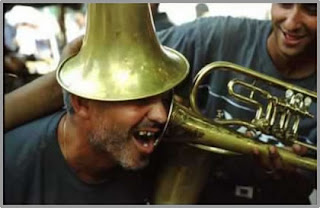Summer in the City Shows Belgrade at its Best
 Belgrade is a welcoming city to be experienced at its best in the summer, when the bustling street cafes, relaxed river bars and city gardens come alive with stylish young people promenading the avenues, squares and parks.
Belgrade is a welcoming city to be experienced at its best in the summer, when the bustling street cafes, relaxed river bars and city gardens come alive with stylish young people promenading the avenues, squares and parks.
On a previous New Year’s Eve visit, winter draped the grey city is a deep blanket of snow and provided its own allure. While providing a attractive monochrome beauty against Belgrade’s often blackened buildings, the snow kept hidden the city’s true beauty. It was time for that to change and so I returned in June.
This time I was in for a treat, as the start of summer heralded a bright new season for Belgrade’s infamous riverside splavs and café culture. Not to mention dance-until-dawn nightlife and some seriously fine dining.
Enjoy Balkan Brass Madness with Guca Festival Package
 If you like your brass flavoured with an generous taste of Balkan mayhem, Serbia’s annual Guca Brass Festival is the only place to be this summer.
If you like your brass flavoured with an generous taste of Balkan mayhem, Serbia’s annual Guca Brass Festival is the only place to be this summer.
Each year the small Serbian village throws open its doors to host four days of the world’s wildest Balkan brass bands and energetic gypsy musicians as the non-stop party rings out along its packed streets.
EXIT: Strengthened by a History of Struggle, Activism and Headlines
 As music fans prepare to kick of the summer festival season across Europe, W!LD RooSTeR thought it was prime time to look at some of the headline grabbers in the history of one of the most exciting events on the calendar: Serbia’s world-class EXIT Festival.
As music fans prepare to kick of the summer festival season across Europe, W!LD RooSTeR thought it was prime time to look at some of the headline grabbers in the history of one of the most exciting events on the calendar: Serbia’s world-class EXIT Festival.
EXIT has grown into an annual four-day festival attracting 200,000 people to the Petrovaradin Fortress in the small Vojvodina town of Novi Sad. Each year, more than 6,000 visitors attend from the UK and those figures are still rising. Since 2007, more than half of all EXIT visitors have come from abroad, with the UK its primary overseas focus.
New UK Immigration Cap Restricts Non-EU Workers
Major immigration changes have come into place to restrict the number of non-EU workers moving to the UK. The Home Office has imposed an annual cap of 20,700 on non-EU people coming to work in skilled professions, as a boost to home-grown employment.
From today, people coming from outside the EU wishing to work in the UK will need to have a graduate level job, speak an intermediate level of English, and meet specific salary and employment requirements


